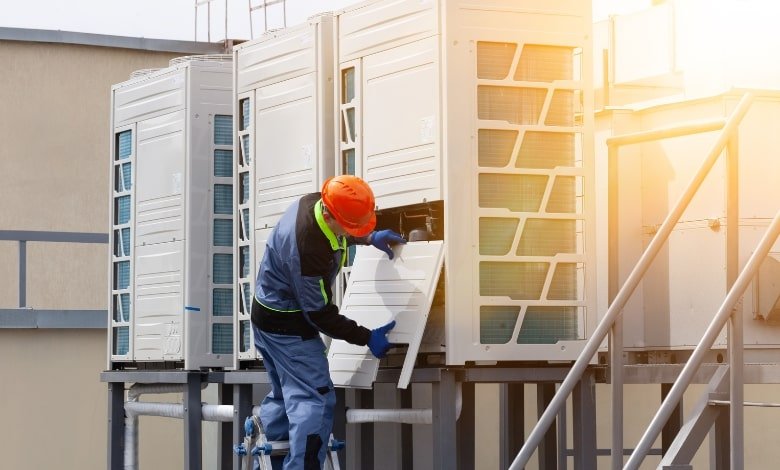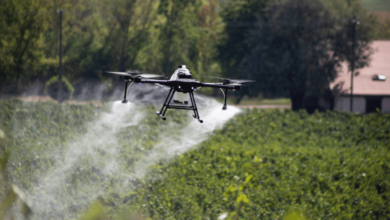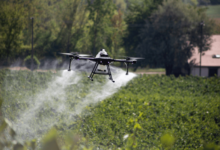HVAC Innovations: 4 Types of Industrial AC Units

The temperature’s been sweltering for weeks, and your industrial workspace feels like an oven. The HVAC system is outdated, and it just isn’t doing the job.
As a business owner, what do you do? Look no further-new HVAC innovations offer four types of industrial AC units that will help keep your workspace cool and comfortable once more.
Read on to find out how the latest AC unit technology is revolutionizing industrial workspaces.
What Is Commercial Air Conditioning?
Commercial air conditioning is a system that cools and conditions the air of indoor spaces. This includes retail shops, offices, and factories. It is typically used to regulate temperature and humidity levels for comfort and safety within a facility.
Industrial-sized AC units are designed to deliver a higher level of cooling performance. This is compared to residential and light commercial air conditioners.
HVAC innovations can help to improve the efficiency and effectiveness of a commercial air conditioning system. It provides higher levels of indoor comfort.
Types of Industrial AC Units
Industrial AC Units play an essential role in many different industries. With the technological advancements in HVAC systems, businesses can now choose from various efficient and affordable industrial AC units to suit their needs best. Here are some types of industrial AC units common today.
1. Central Air Conditioning
Central AC systems serve as the foundation of most industrial cooling systems. They are typically made up of networked components. These components may include:
- large-scale air conditioners
- air handlers
- thermostats
- ducts
- even chillers
These systems allow a large amount of air to be evenly cooled throughout a building or structure.
Central air conditioning systems are often used to cool large warehouses and open-concept workspaces with hundreds of employees. This type of unit is ideal for large warehouses, factories, and other large facilities because it provides effective cooling to a large area. These systems are highly efficient and work to properly cool all areas of the building, regardless of the size.
Systems like these often utilize variable air volume (VAV). The VAV adjusts the air pressure flow depending on the size of the space.
Other innovations include VRV systems that allow the control of multiple smaller units from one centralized control center. This helps to monitor the temperature in different areas of the building. It also ensures the perfect environment for all workers.
2. Ducted Split-System Air Conditioning
Ducted split-system air conditioning is one innovation that is cost-effective and efficient. They conditioning consists of two separate units. These are indoor air handlers and outdoor compressors.
The indoor air handler has an air supply and return duct. This circulates cooled air throughout the facility. The outdoor unit houses the following:
- evaporator coil
- compressor
- condensing coil
- fan
The evaporator coil cools the air. The compressor compresses the air to increase cooling power. The condensing coil transfers heat energy from the air to the atmosphere.
Finally, the fan moves the cooled air into the ducts to circulate throughout the facility. This type of air conditioning system offers a high-efficiency, reliable cooling option for industrial uses.
3. Ductless Split-System Air Conditioning
HVAC innovations have been developing at a rapid rate in recent years. One of the most widely used innovations within HVAC is the ductless split system AC unit.
This system eliminates the need for ductwork and insulation. It can reduce the installation process drastically.
The ductless unit is equipped with an outdoor unit that transfers heat from the inside to the outside. It also has an indoor unit that circulates cooled air through the room. This system is perfect for business or residential locations where ductwork is problematic or costly to install.
Ductless split system AC units come in various sizes and capacities. One can easily customize them to meet individual needs. They are also energy and cost-efficient. This can help to reduce monthly energy costs.
These units are also low maintenance. This leads to spending less money on repairs and upkeep, thereby reducing operational costs. Ductless split system AC units are an excellent HVAC innovation and help to ensure cost-effective cooling solutions for consumers.
4. Air-Cool and Water-Cool Chillers
HVAC innovations have led to the development of different types of industrial AC units. Specifically, Air-cool and Water-cool chillers are some of the more popular types of industrial air conditioners. They offer a cost-effective way to keep the air cool and comfortable.
Air-cool chillers function by using a compressor to compress and circulate a coolant through the coils of a set of external air blowers. Then, they use the blowers to circulate the air through the unit’s interior space.
Conversely, Water-cool chillers are more efficient than Air-cool chillers. They use water as the cooling agent instead of the coolant. Cooling the water in a closed system transfers heat to the air circulated by the blowers.
Both Air-cool and Water-cool chillers are very efficient and cost-effective solutions for industrial applications. They are providing workers with comfortable temperatures and efficient cooling systems.
FAQs on Industrial Air Conditioning
Industrial air conditioning FAQs cover a wide range of topics. This ranges from the types of available systems to installation, maintenance, servicing, and more. With the correct information, you can use industrial air conditioning units to create or maintain comfortable work environments for employees or machines.
As with all air conditioning systems, correct installation is essential for proper operation. Industrial air conditioning units require proper sizing and CFM rating for the space. The type of operation the unit will perform determines this. A qualified and licensed commercial HVAC technician should install these units.
Regularly perform routine maintenance to ensure the unit runs optimally. This may include filter changes and refrigerant level checking.
Additionally, you should perform routine servicing on the unit. This way, it can keep running efficiently and reliably. Understanding the requirements and procedures for industrial air conditioning can save businesses time and money.
Find the Best Industrial AC Units for Your Needs
Industrial HVAC systems are essential for a comfortable environment in unique industrial applications. From small to large applications, there exist four main types of industrial AC units available to meet the needs of any task. To learn more information about your HVAC needs, contact an experienced HVAC professional today!
If you enjoyed this article, visit our blog today to find more like it!






